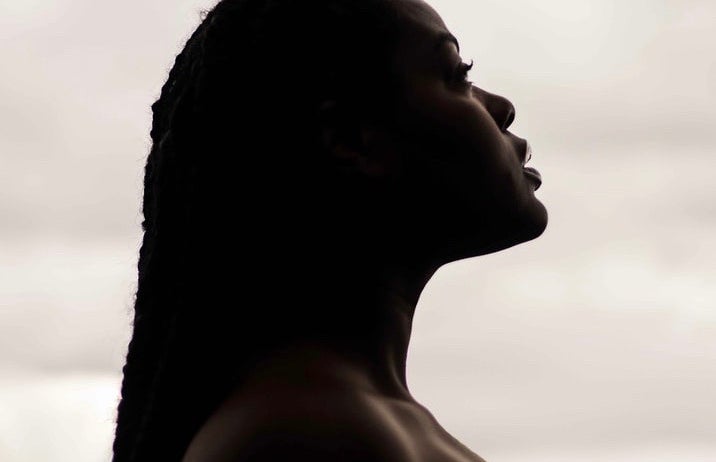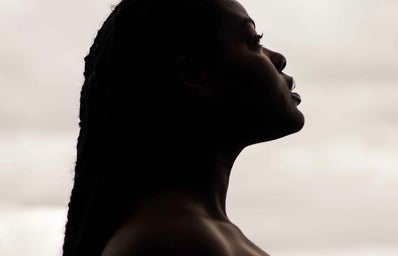Have you ever felt frustrated when looking at history books? It seems that they’re always mentioning the same kind of people. Do you know who? You guessed it: (allegedly) straight and, especially, white men. While many of them have made amazing contributions, there are just as many inspirational women who have made groundbreaking discoveries, started art and literary movements, led social uprisings and changed the face of the world.
But, historically, efforts to recognize the achievements of women have focused on white women and set aside Black women. During Black History Month and Women’s History Month, and all subsequent ones, it’s important we make time to learn about the Black women who raised, empowered, and fought for us. It would be impossible to list all the talented and dedicated Black women we owe an immense debt to, so let’s start with five of them. These innovators, artists, politicians and educators all have something in common: their stories will leave you grateful, and determined to walk in their footsteps.
- Shirley Chisholm (1924-2005)
-
In 2021, Kamala Harris became the first Black female Vice President of the United States and voting rights activist Stacey Abrams was nominated for the Nobel Peace Prize. But they couldn’t have done it alone: Shirley Chisholm paved the way for Black women in politics. In 1968, she was the first Black woman to win a seat in Congress as she represented New York’s 12th congressional district for seven terms. Four years later, she ran for the Democratic presidential nomination, pushing a platform focused on racial and gender equity.
Chisholm was a grassroots activist for women and minorities. She was a member of local chapters of the League of Women Voters and the National Association for the Advancement of Colored People (NAACP). While in Congress, she fought for racial and gender equality, defended the poor, and advocated against the Vietnam War. She co-founded the National Women’s Political Caucus in 1971, and in 1977 became the first Black woman and second woman ever to serve on the powerful House Rules Committee.
Chisholm faced discrimination following her presidential nomination for the Democratic Party in 1972. Despite being blocked from participating in televised primary debates and facing contentiousness from the predominantly male Congressional Black Caucus, she earned 152 of the delegates’ votes (10% of the total).
If you want to discover more of Chisholm’s philosophy, read her autobiography Unbought and Unbossed or watch the documentary on her presidential bid, Chisholm ‘72.
One quote to remember: “The Black man must step forward, but that doesn’t mean the Black woman must step back.”
- bell hooks (born 1952)
-
bell hooks wasn’t your typical professor: she was a social activist. After noticing a significant absence of Black women from feminist literature during her English studies, she began writing her book, titled Ain’t I A Woman. With this novel, hooks aimed to bring the concerns of Black women into the mainstream feminist movement. She examined the historical impact of sexism and racism on Black women, brought up the idea of a white-supremacist-capitalist-patriarchy, shone a light on the devaluation of Black womanhood, and called attention to the disregard for issues of race and class within feminism.
An eminent political thinker and cultural critic, she has also advocated for a transgressive approach in education through her 1994 book Teaching to Transgress: Education as the Practice of Freedom. In the book, she argues that educators should teach students to “transgress” against racial, sexual, and class boundaries in order to achieve the gift of freedom, therefore presenting the classroom as a place where students can either learn constraint and oppression or find liberation.
One quote to remember: “If any female feels she needs anything beyond herself to legitimate and validate her existence, she is already giving away her power to be self-defining, her agency.”
- Josephine Baker (1906-1975)
-
Who knew you could be a heroine of the French Resistance, a jazz-age icon, a defender of Civil Rights, and the mother of children from across the globe? Josephine Baker did. She was all that and more.
Josephine Baker was a famous performer from St. Louis, Missouri who grew up in poverty before learning to dance and finding success on Broadway.
Appalled by the discrimination and racism she faced, Baker moved to France in the 1920s, where she found fame and fortune and became one of Europe’s most loved performers. Filled with patriotism for the country that embraced her as one of its own, Baker worked for the French Resistance during World War II by smuggling messages hidden in her sheet music and underwear.
In the 1950s and 1960s, Baker devoted herself to fighting inequality, segregation, and racism in the U.S. She frequently returned home to join the Civil Rights Movement and participated in the 1963 March on Washington. She was determined to build solidarity across people of all races and adopted children from all over the world, creating what she described as her “rainbow tribe” and “experiment in brotherhood.”
You can learn more about this icon in her biography Josephine Baker: The Hungry Heart, available at your local bookstore and on Amazon.
One quote to remember: “I have walked into the palaces of kings and queens and into the houses of presidents. And much more. But I could not walk into a hotel in America and get a cup of coffee, and that made me mad.”
- Bessie Coleman (1892-1926)
-
When boarding a plane before the pandemic, few of us ran into Black female pilots. After all, being a woman in STEM is an uphill battle. But you’d be surprised to find out that Black women were pioneers for women in aviation. Bessie Coleman was one of them.
An early American civil aviator who specialized in stunt flying and parachuting, she was the first Black woman to earn a pilot’s license and the first Black person to earn an international pilot’s license.
Coleman became interested in aviation after soldiers returning from World War I told her tales of flying adventures. After getting rejected from American flying schools because she was both Black and a woman, Coleman decided to learn to fly in France and came back to the United States after earning her license in 1921. In 1922, she performed the first public flight by a Black woman and became famous for making the shape of an “8” in an airplane and doing “loop-the-loops.” Coleman toured the country giving flight lessons, performing in flight shows, and encouraging Black men and women to learn how to fly. She continued to stand up for the Black community, refusing to speak and perform anywhere that was segregated or discriminated against Black people.
You can learn more about her in the documentary, The Legend: The Bessie Coleman Story, available to watch on Amazon.
One quote to remember: “The air is the only place free from prejudice.”
- Sister Rosetta Tharpe (1915-1973)
-
Ever heard of the godmother of rock n’ roll? That’s Sister Rosetta Tharpe for you: her gospel recordings were precursors of rock and roll. The singer, songwriter, and guitarist’s works were characterized by a unique mixture of spiritual lyrics and rhythmic accompaniment.
“When you see Elvis Presley singing early in his career … imagine he is channeling Sister Rosetta Tharpe,” said historian Gayle Wald. “It’s not an image I think we’re used to thinking about when we think of rock & roll history – we don’t think about the black woman behind the young white man.”
The trailblazer, a queer black woman from Arkansas, toured the south with fellow gospel icons the Dixie Hummingbirds. In 1945, her single “Strange Things Happening Every Day” was the first gospel single to cross over on the Billboard race charts.
You can learn more about the gospel singer in her biography Shout, Sister, Shout!, available on Amazon.
One quote to remember: “I sing from morn’ to night: it makes my burdens light. I’m singing in my soul.”
There are so many books, movies, and documentaries to learn more about women who paved the way for us. I recommend checking out Bad Girls Throughout History, a book with fun essays and bold watercolor portraits that features 100 revolutionary women who challenged the status quo. And as we look back on feminist trailblazers, let’s remember to do so with an intersectional lens and honor the work of Black women.


